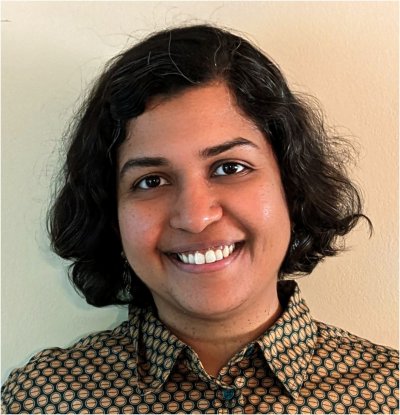How Designers Create Scalable Science Curricula
Anushree Bopardikar is a PhD student in the department ELAN Teacher Development. (Co)Supervisors are prof.dr. S.E. McKenney from the faculty of Behavioural, Management and Social Sciences and dr. D. Bernstein and dr. B. Drayton from TERC Massachusetts.
 Science education reforms for schools envision supporting all students and teachers to engage actively with foundational concepts and practices. Crucial to realizing this vision are high-quality curricula that can serve a broad range of students and teachers. But creating such curricula is challenging because designers need to support deep student learning in integrating and applying scientific ideas and practices, which in turn calls for supporting deep teacher learning to enact the same. Furthermore, the latter is influenced by curricular persistence, i.e., the extent to which materials have lasting influence by promoting teachers’ ownership in making instructional decisions and adaptations; by sustaining enactment even as professional development fades over time; and by spreading in use beyond initial field test sites. Whereas the existing literature does highlight features of high quality (science) curricula as well as general models for designing curriculum and instruction, more is needed. Specifically, the empirical basis for much of the literature on designers’ processes is quite limited. There is very little work which depicts the thinking and processes of expert designers with track records for yielding successful curricula, and there is almost no research on these issues with regard to curricula designed for large-scale use. As a result, there is little explicit knowledge to guide designers in understanding and creating specific curricular designs to achieve the vision of science education reforms. Hence, to fill this lacuna, the present dissertation followed a qualitative multiple case study approach to collectively pursue three research objectives focused on identifying designers’ rationales, considerations, and processes for: supporting deep student learning; for supporting teacher learning via educative materials; and for supporting persistence in curriculum enactment. To achieve these objectives, four sub-studies investigated designers’ work behind scalable curricula that had attained positive outcomes for students and/or teachers. The sub-studies examined designers’ work on a high school physics curriculum; on a primary school curriculum on matter; and on a middle school ecology curriculum. The sub-studies together provide concrete precedents, implications, and guidelines to help designers attend to key considerations and measures for supporting deep student learning, deep teacher learning, and curricular persistence. The dissertation concludes with recommendations for curriculum design research, practice, and policy.
Science education reforms for schools envision supporting all students and teachers to engage actively with foundational concepts and practices. Crucial to realizing this vision are high-quality curricula that can serve a broad range of students and teachers. But creating such curricula is challenging because designers need to support deep student learning in integrating and applying scientific ideas and practices, which in turn calls for supporting deep teacher learning to enact the same. Furthermore, the latter is influenced by curricular persistence, i.e., the extent to which materials have lasting influence by promoting teachers’ ownership in making instructional decisions and adaptations; by sustaining enactment even as professional development fades over time; and by spreading in use beyond initial field test sites. Whereas the existing literature does highlight features of high quality (science) curricula as well as general models for designing curriculum and instruction, more is needed. Specifically, the empirical basis for much of the literature on designers’ processes is quite limited. There is very little work which depicts the thinking and processes of expert designers with track records for yielding successful curricula, and there is almost no research on these issues with regard to curricula designed for large-scale use. As a result, there is little explicit knowledge to guide designers in understanding and creating specific curricular designs to achieve the vision of science education reforms. Hence, to fill this lacuna, the present dissertation followed a qualitative multiple case study approach to collectively pursue three research objectives focused on identifying designers’ rationales, considerations, and processes for: supporting deep student learning; for supporting teacher learning via educative materials; and for supporting persistence in curriculum enactment. To achieve these objectives, four sub-studies investigated designers’ work behind scalable curricula that had attained positive outcomes for students and/or teachers. The sub-studies examined designers’ work on a high school physics curriculum; on a primary school curriculum on matter; and on a middle school ecology curriculum. The sub-studies together provide concrete precedents, implications, and guidelines to help designers attend to key considerations and measures for supporting deep student learning, deep teacher learning, and curricular persistence. The dissertation concludes with recommendations for curriculum design research, practice, and policy.





